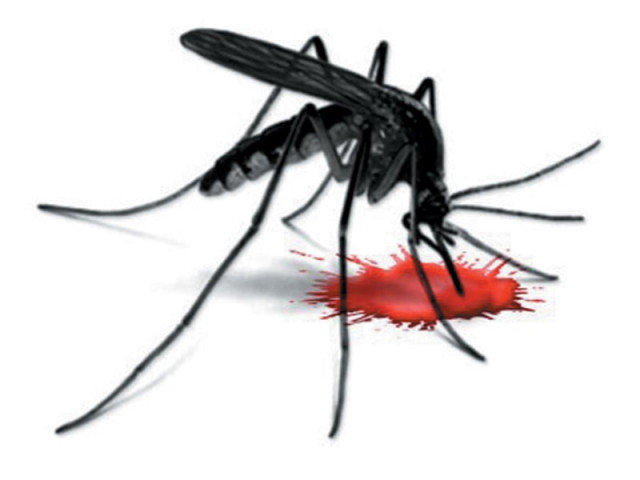Despite preventive measures: Dengue still a potential threat for residents
17 people have been admitted in Pindi’s allied hospitals in the last 24 hours.

17 people have been admitted in Pindi’s allied hospitals in the last 24 hours. PHOTO: FILE
Of the 8,500 samples of rainwater collected from Islamabad’s urban areas by the Capital Development Authority’s (CDA) Directorate of Health Services, 208 were found to contain aedes aegypti, a mosquito that spreads the dengue virus.
Talking to The Express Tribune, CDA Health Director Dr Hassan Urooj said the samples were taken from garbage dumps, discarded tyres and utensils for animal feed, while most traces of dengue mosquito were found from sectors G-6 and G-7.
Dr Urooj said nine positive cases of dengue have been reported from Islamabad to date, three had contracted the disease from the capital and were residents of sectors I-10, F-6 and G-7. The remaining six probably acquired it from Swat, Karachi and Rawalakot in Kashmir, he said. Prevention was important to control the spread of dengue. “The CDA health department has devised a plan under which individuals found promoting a conducive environment for the dengue mosquito in their homes or places of business will be fined.” He added that the proposal would be sent to the CDA chief for final approval.

Meanwhile, Pakistan Institute of Medical Sciences (Pims) Spokesperson Dr Ayesha Eshani said the hospital had admitted four new dengue patients in the last 48 hours, all of whom were residents of Rawalpindi, two from Asghar Mall Chowk and two from Khayaban-e-Sir Syed. She said that in the last two months, the hospital had received six patients suffering from dengue.

“73 cases of dengue have been reported in the Allied Hospitals of Rawalpindi so far this year, of which 17 have been reported during the last 24 hours” according to the focal person for Rawalpindi Medical College, Dr Javed Hayat. Of the total figure, 55 have been reported from the Holy Family Hospital, six at Benazir Bhutto Hospital and four at District Headquarters Hospital, he said. The majority of cases have been reported from Rawalpindi, he added.

“This is the peak season for dengue and it will continue till the first week of November. People should take preventive measures such as avoiding going out of the house without donning full sleeves shirtsavoid keeping water-filled containers at home,” he said.
Rawalpindi District Health Officer Dr Khalid Randhawa said dengue is under control in the city and the recent emergence of cases is due to the virus’s peak season. “The majority of larva sites were found in Rawal Town and action had been taken to destroy them.”
Published in The Express Tribune, October 6th, 2013.



















COMMENTS
Comments are moderated and generally will be posted if they are on-topic and not abusive.
For more information, please see our Comments FAQ